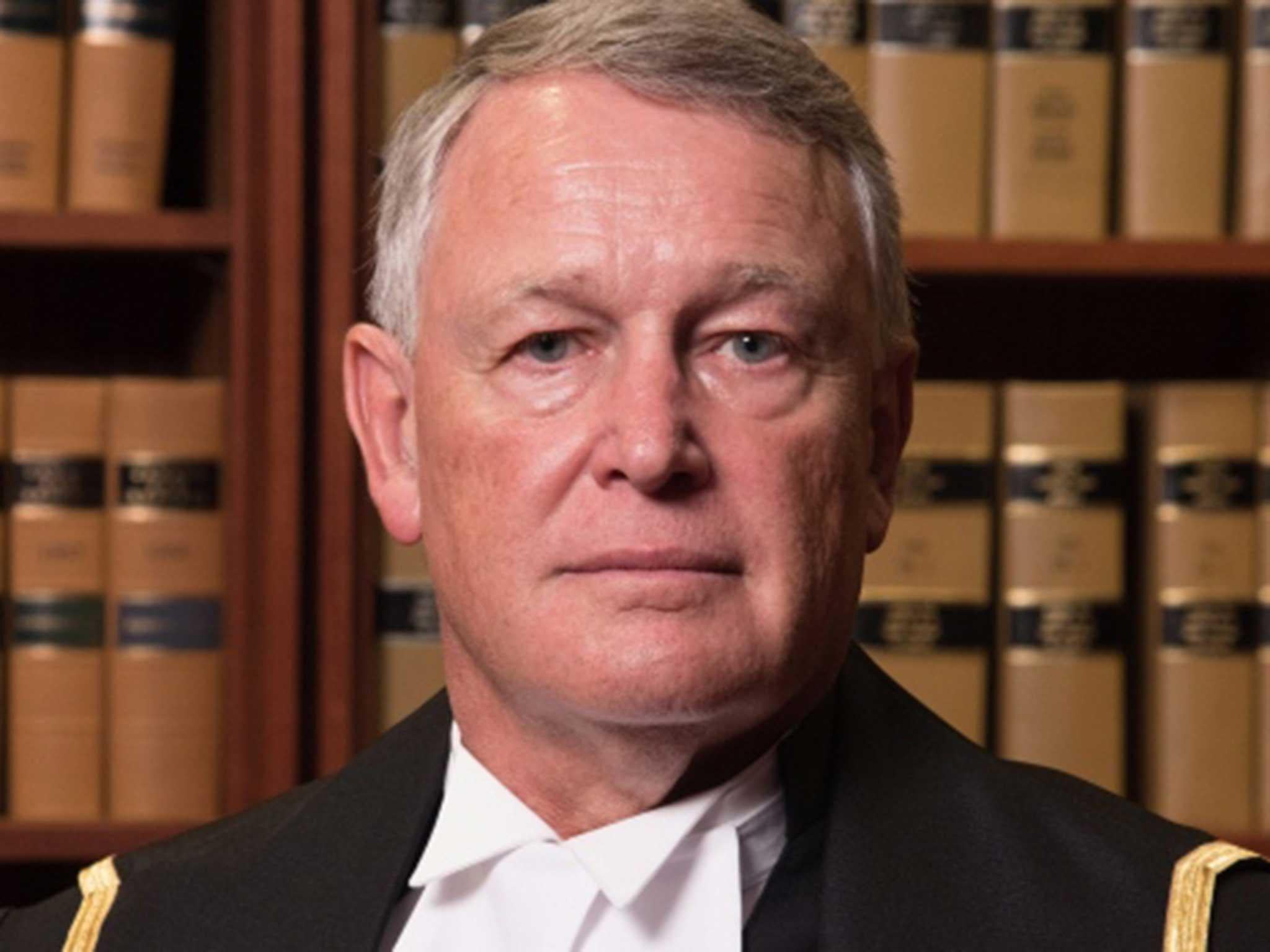Judge apologises to alleged rape victim for asking why she couldn't keep her knees together
'Sex and pain sometimes go together – that's not necessarily a bad thing,' said Judge Robin Camp

A Canadian judge has apologised for asking a victim in a sexual assault trial why she did not keep her knees together.
Federal court judge Robin Camp - who faces losing his job over his comments - testified at a rare disciplinary hearing before a five-member committee.
Complaints were made to the committee of Mr Camp's handling of a sexual assault trial in 2014.
A 19-year-old homeless woman said she was raped over a bathroom sink at a house party.
Mr Camp asked at the time why the woman did not “skew her pelvis” to avoid forced penetration. He said: “Why couldn’t you just keep your knees together?” CNN reported.
Speaking before the committee, Mr Camp said: "My concept of what I did wrong has grown."
"I'm very sorry that, on reflection and rereading what I said, that I intimidated her using facetious words."
He admitted he was biased but claimed had taken steps to reform.
"I can't guarantee that I'm not prejudiced in other areas... I have learned to be constantly vigilant against it," he said.
He added: "I recognize that I'd made a number of vulnerable people miserable. I was very unhappy with myself. The person I most want to apologize for is the complainant."
At another point during the trial he said: "Some sex and pain sometimes go together...that's not necessarily a bad thing."
On the subject of sex in general he said, "Young wom[e]n want to have sex, particularly if they're drunk."
According to court transcripts, Mr Camp questioned the woman’s morals and suggested her attempts to fight off her alleged attacker were feeble. He incorrectly referred to the woman throughout the trial as “the accused”.
Mr Camp ultimately acquitted the defendant, but his ruling was overturned on appeal and will be retried in November.
Speaking at Mr Camp's hearing, the woman said: “He made me hate myself and he made me feel like I should have done something ... that I was some kind of slut,” Canadian Press reported.
She added: “He made comments asking me why didn’t I close my legs or my ankles together... What did he expect me to say to something like that?”
“I hate myself that I let that happen and I let that judge speak to me that way.”
The council considering Mr Camp’s role said the judge "engaged in stereotypical or biased thinking in relation to a sexual assault complainant."
Mr Camp’s daughter, Lauren, wrote a letter of support for her father in which she revealed she too had been the victim of a sexual assault.
In the letter she condemned her father’s words as “disgraceful” and said that she found his remarks painful.
But she said he had gained empathy and understanding since making the remarks and urged the committee to allow him to keep his job.
Testifying at the hearing, Mr Camp said at the time he was not familiar with Canadian criminal law. He had spent two decades practising law in South Africa previously.
The review committee will make recommendations to the full judicial council, who will decide if Mr Camp remains in his role as a federal judge.
Join our commenting forum
Join thought-provoking conversations, follow other Independent readers and see their replies
Comments